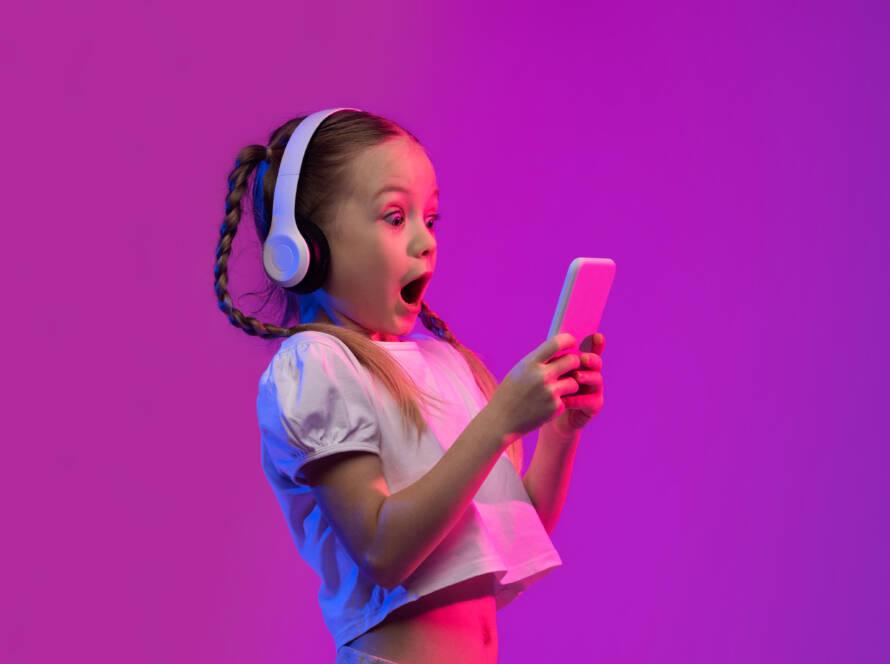Facebook just turned 20 years old! In 2004, Facebook made its debut in the U.S as a platform meant to connect students and was limited to those frequenting Harvard University. It opened to the public in 2006, revolutionising social interactions online. In Italy, its introduction a couple of years later brought significant change in the world of communication. At the beginning, the language used was more formal and impersonal, reflecting the first approach to digital communication.
As the years went by, Facebook became a more informal and direct environment. Introducing chats revolutionised daily communication, providing fast and authentic online interactions. All of this popularised a more english approach, in which personal expression and spontaneously sharing have become the norm.
It revolutionised our way of living and communicating. Sociologically, it has made the world more interconnected, facilitating communication between individuals and collectives. In marketing, it has introduced new marketing models, taking advantage of targeting, changing the advertising landscape.
Marketing revolution
Facebook, as it celebrates its 20th anniversary, has played a fundamental role in redefining our digital landscape and social dynamics. When it launced its main goal was to connect students and former students. Since then, it has gone beyond anyone’s expectations, becoming a global platform with more than 2 billion active users monthly.
The ascent of Facebook Marketplace has transformed the platform into a retail hub, creating an experience of social shopping. Not only did people communicate, but now they’re trading goods and services directly on the platform. The introduction of Facebook AD campaigns has changed the face of digital marketing. Companies of all sizes have begun taking advantage of targeting, reaching more specific slices of the public with personalised ads. This has opened up the opportunity for growth and visibility, revolutionising the way businesses promote themselves online.
The introduction of the News Feed algorithm has revolutionised the way in which users consume content, determining what they see based on interests and past interactions.
This way Facebook has redefined marketing allowing companies to reach specific demographics and interests through a smart use of user data. For example, personalised announcements based on search behaviour have changed the way in which companies approach their audience, allowing also for viral marketing campaigns. Do you remember, for example, the “Ice bucket challenge” campaign? That chain of freezing showers showcased the power of sharing and participating, and generated awareness and funds for ALS.
“Share a brand” with Facebook
With Facebook’s rise in popularity as a social-media platform, many companies began exploring advertising opportunities on the website. Coca-Cola was among the first to recognise Facebook’s potential as a marketing channel and started investing in advertising campaigns on the platform. In 2011, they launched a campaign in which users could virtually share a Coca-Cola with their friends.
The brand, which has always distinguished themselves for their ability to take advantage of the latest trends to gain publicity, created one of the most iconic and successful campaigns in recent history: “Share a Coke”. The campaign entailed printing individual names on the side of bottles and cans of Coke, allowing clients to find and share a Coca-Cola with friends and family with the same name.
It was initially launched in Australia, and was a great success, it increased sales by 7%, 250.000 bottles of personalised Cokes were sold in the first 3 months. The campaign was extended to other countries around the world, including the U.S, Canada and the UK.
Why was the “Share a Coke” campaign such a success? The campaign encouraged customers to share their Coca-Cola with others, creating a sense of community around the brand, anticipating future Facebook trends.
From a personal tool to one for the masses
Facebook’s transformation from “high school diary” to alternate universe has been relatively fast. Facebook has historically been a key platform to launch and communicate mass phenomena, thanks to the speed in which the messages could be sent and shared. From lively discussion to themed groups, the platform has become a virtual place to share and trade ideas. There are many stories of deep connections and friendships born on Facebook and they have become a testament to the platform’s power to create significant bonds.
Initially conceived as a way to connect friends, Facebook’s role has evolved, becoming a tool for personal branding. Individuals and companies have begun taking advantage of the platform to build and promote their digital identity, creating a new paradigm of online communication. Facebook has transformed the concept of personal connection. Before, online communication was primarily done through emails and forums. Now, the platform offers a window onto people’s lives in real time, creating a continuous sense of connection. However, there’s also been an increased awareness of the impact it has had on mental health, due to obsessions over like and social comparisons. The balance between the positive and negative side effects of social-media has become a fertile area of studies for sociology.
The dark side of Facebook
Twenty years after its debut, Facebook has impacted the very tissue of Italian society, transforming the way we communicate, acquire and promote ourselves. Its story in Italy is a testament to how a platform initially conceived for socialising has become the catalyst for significant changes in our daily lives and the business world. It’s a story that is still being written, leaving a mark in our digital history. Even big brands have begun thinking about the consequences, often tragic, it may have on young generations.
In 2020, different organisation, including Anti-Defamation League (ADL) and the National Association for the Advancement od Coloured People (NAACP), launched The “Stop Hate for Profit” campaign, in order to ask Facebook and other social-media platforms to adopt more robust measures to fight against online hate and misinformation. The ease of making “friends” online is also social-media’s dark side.
The movement garnered much visibility. It brought many large companies to take a stand against online hate, temporarily retracting their advertising from platforms like Facebook and Instagram.
Coca-Cola, Verizon, Starbucks, Unilever and Microsoft chose to not purchase ad space on Facebook for a period od time in order to put pressure on the platform to adopt better measures against bullying, racism and hate speech.
Transformation and social responsibility
Companies’ collective actions sent a strong message to Facebook, showcasing how they are willing to let go of important advertising investments in order to get the platform to actually listen to the “Stop the Hate for Profit” campaign. The movement in the end was successful and made people aware of the responsibility social-media platforms have in managing hateful content on their websites.
In conclusion, Facebook’s evolution in the last 20 years has been a roller coaster of social change and marketing revolutions. From its humble beginnings to global titan, Facebook has redefined the way we connect, communicate and engage in marketing. A fascinating chapter in the digital history books which is still being written.





